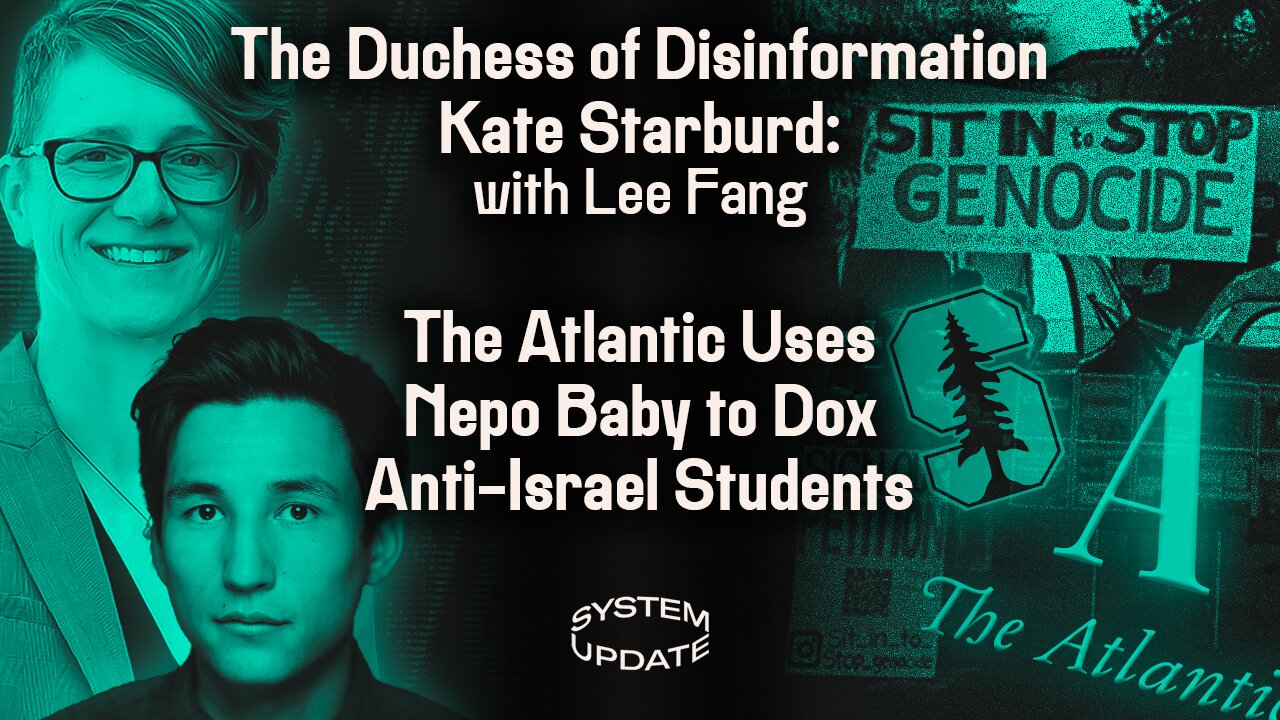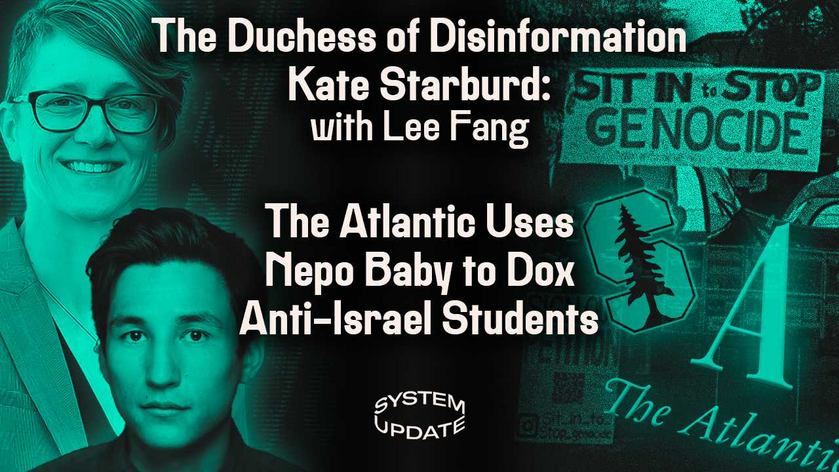Watch the full episode here:

Good evening. It's Wednesday, March 27.
Tonight: There is a group of people in the United States who have become convinced that they are qualified to decree what is true and what is false—not in any one particular area of expertise that they have spent a lot of years studying, say, cardiology or archeology or physics, but they believe they are somehow competent to identify truth and falsity in general. And more than just being somehow qualified to identity truth and falsity in general, they believe they are entitled to have their judgments be binding on others, that if they pronounce something to be false or inaccurate, then it should no longer be permitted to be expressed or to be heard.
Such people now call themselves "disinformation experts." This is a completely fraudulent credential. It was invented out of whole cloth following the dual 2016 disasters of Brexit in the UK and Trump's victory over Hillary in the U.S. Seemingly out of nowhere, overnight, there descended upon the United States this creepy new group of self-anointed experts who proclaimed to the world that they were able to identify falsity and deceit where nobody else could. As a result of this unique insight they insist that they and they alone possess, they have demanded the power to dictate the limits of our political debate, and have purported to impose on the largest tech companies in the West the obligation to enforce their pronouncements.
It should be—and would be—very easy to scoff at such people and dismiss them the way one laughs at people who materialize and proclaim themselves the Messiah and demand that everyone obey and follow them. Yet these people are often financed by the most powerful and politically interventionist billionaires in the West. The country's largest media outlets routinely treat them as the prophets they claim to be. Often, they’re backed by the U.S. intelligence agencies and increasingly, in the West, the force of law is being wielded to bestow upon their judgments an unquestioning shield of truth.
Over the weekend, the television program “60 Minutes” featured a woman named Kate Starbird, and she was presented as one of our nation's most important and prestigious disinformation experts. “60 Minutes” found it quite scandalous – as did Starbird herself – that X and other platforms have failed in many instances to remove political speech that Starbird believes is false and should be removed. This “60 Minutes” segment really shines a light on how these people think. And since Starbird herself has worked with some of the most menacing state and private-sector institutions attempting to police our political discourse, understanding her is vital to understanding the institutional weapons being unleashed to control political speech online.
One of the journalists who has done the best work on all of this is the independent reporter, Lee Fang. He was not only one of the lead journalists working on the Twitter Files that exposed many of these institutional relationships but has reported specifically on Starbird and the organizations that employ her. He'll join us to talk about what makes her and all of this—this whole system—so truly threatening to our core freedoms.
Then: the term tattletale journalism is a phrase I first used back in 2021 to describe a new and deeply rooted mentality that now dominates much of corporate journalism. Rather than focus journalistic resources on investigating and exposing institutions of authority and individuals that wield actual power—which is always my understanding of what journalism was supposed to be— instead, the nation's largest media corporations often focus on targeting private citizens who have little to no power, and then drag them into the public light for shaming and even reputational destruction, all as punishment for their having, in the eyes of these media figures, bad political opinions.
Last night, The Atlantic, which is a magazine owned and funded by one of the richest people on the planet, Steve Jobs’s widow, Laurene Powell Jobs used its vast resources not to target the CIA or Wall Street or the Pentagon, but instead, 22-year-old college students at Stanford who have made what the magazine considers to be intemperate remarks about Israel and their war in Gaza. The editor-in-chief of The Atlantic is Jeffrey Goldberg, who used to serve in the Israeli Defense Forces, IDF, as a prison guard overseeing prisons that held Palestinian prisoners. For this article, he commissioned the 19-year-old son of Peter Baker, who is the New York Times Washington bureau chief, as well as Susan Glasser, the long-time writer at Politico and The New Yorker, where she befriended Goldberg, who then hired her college son to write this article attempting to destroy the reputation of several students at Stanford for the crime of criticism of Israel.
In so many ways, this article reveals the rot at the heart of American corporate journalism and so, with great reluctance, we will wade into it for that reason.
For now. Welcome to a new episode of System Updates, starting right now.






















